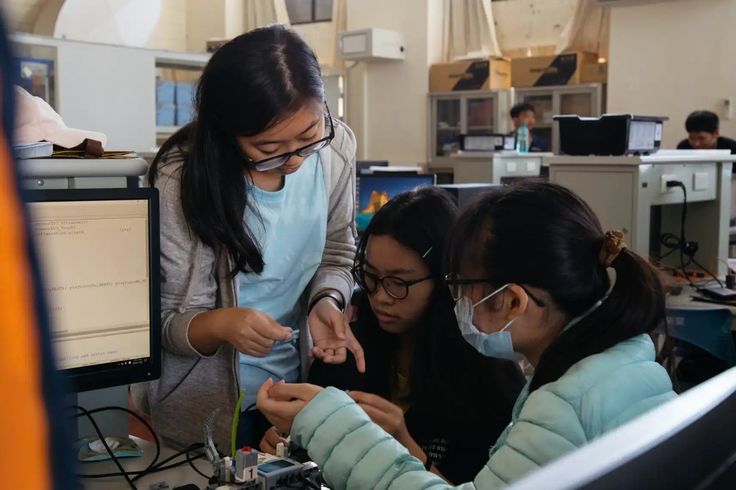In today’s fast-paced professional world, the traditional path of a four-year degree followed by a lifelong career is becoming a relic of the past. The demand for new skills is evolving at an unprecedented rate, driven by technological advancements and shifts in the global economy. To keep up, professionals need a more agile and targeted way to learn, and this is where micro-credentials are emerging as a powerful solution. These focused, verifiable certifications are revolutionizing how we approach professional development, offering a flexible and efficient alternative to traditional education.
The rise of micro-credentials isn’t just a trend; it’s a direct response to the growing “skills gap” felt across numerous industries. Employers are increasingly finding that recent graduates, and even experienced workers, lack the specific, up-to-date competencies needed for modern roles. A traditional degree provides a strong foundation, but it often can’t keep pace with the rapid emergence of new software, methodologies, and technologies. Micro-credentials bridge this gap by allowing individuals to acquire and validate specific, in-demand skills quickly.
This comprehensive article will explore the transformative world of micro-credentials. We will delve into what they are, why they have become so crucial for both employees and employers, and how they are reshaping the landscape of education and career advancement. From boosting your resume to enabling a complete career change, you’ll discover how these bite-sized learning achievements can unlock significant professional growth and create a culture of continuous, lifelong learning.
What Exactly Are Micro-Credentials?
Before diving into their benefits, it’s essential to understand what micro-credentials are and what they are not. They are not a replacement for a university degree, but rather a supplement and a specialized extension of learning.
A micro-credential is a digital certification that verifies an individual has mastered a specific skill or competency. Think of them as mini-degrees focused on a single, practical area of expertise. They are awarded upon the successful completion of a short course, assessment, or project-based work.
Key characteristics of micro-credentials include:
A. Focused and Specific: Unlike a broad degree program in marketing, a micro-credential might focus specifically on “SEO for E-commerce” or “Advanced Google Analytics.” This specificity is their greatest strength.
B. Competency-Based: The goal isn’t just to complete a course, but to prove you can do something. Most programs require the learner to pass a rigorous assessment, complete a real-world project, or demonstrate their skills in a practical way.
C. Offered by Diverse Providers: Micro-credentials are not limited to traditional universities. They are offered by a wide range of organizations, including major tech companies (like Google and Microsoft), professional associations, and online learning platforms (like Coursera, edX, and Udacity).
D. Digitally Verifiable: A crucial feature is that they are almost always digital and easily verifiable. They can be added to a LinkedIn profile with a single click, embedded in a digital resume, or shared with a potential employer, who can then verify their authenticity online.
The Driving Force: Why Micro-Credentials Matter Now
The surge in popularity of these credentials is not accidental. It’s fueled by a perfect storm of economic, technological, and educational factors that highlight the limitations of traditional learning models in the 21st century.
A. For the Individual Professional
For anyone looking to advance their career, micro-credentials offer a wealth of advantages that are both practical and strategic.
- Targeted Upskilling and Reskilling: The most significant benefit is the ability to acquire new skills in a targeted manner. A marketing manager can earn a micro-credential in AI-powered marketing tools, or an accountant can get certified in a new data visualization software without enrolling in a multi-year program. This is crucial for staying relevant in a role that is constantly evolving.
- Enhanced Employability and Career Mobility: In a competitive job market, a resume filled with relevant micro-credentials stands out. It signals to employers that a candidate is proactive, committed to professional development, and possesses the specific, practical skills required for the job. This can lead to promotions, new job opportunities, and even complete career changes.
- Flexibility and Accessibility: Most micro-credential programs are designed for working professionals. They are often self-paced, online, and can be completed in a matter of weeks or months. This flexibility allows individuals to learn without having to take a break from their careers or personal commitments.
- Cost-Effectiveness: Compared to the staggering cost of a master’s degree or other graduate programs, micro-credentials are a far more affordable way to gain valuable skills. This democratization of education opens doors for individuals who may not have the financial resources for traditional higher education.
B. For the Modern Employer
Businesses are increasingly embracing micro-credentials not just as a valid form of education, but as a strategic tool for talent development and acquisition.
- Closing the Internal Skills Gap: Instead of looking externally to fill a new role, companies can use micro-credentials to upskill their existing workforce. This is often more cost-effective than hiring new employees and has the added benefit of boosting employee morale and retention. A company can sponsor a cohort of employees to get certified in a new project management methodology, for example.
- A Reliable Signal of Practical Skills: While a college degree indicates a certain level of knowledge, a micro-credential from a reputable provider verifies a specific, applicable skill. When an employer sees a “Salesforce Administrator” or “AWS Certified Cloud Practitioner” credential, they have a high degree of confidence that the candidate possesses those hands-on abilities.
- Streamlining the Hiring Process: Sifting through hundreds of resumes can be a daunting task. By using micro-credentials as a filter, recruiters can quickly identify candidates who have already demonstrated the necessary competencies, making the hiring process faster and more efficient.
- Fostering a Culture of Lifelong Learning: Companies that encourage and sponsor micro-credentials send a clear message that they invest in their employees’ growth. This helps create a dynamic, adaptable workforce that is better equipped to handle future challenges and innovations.
The Micro-Credential Ecosystem: Key Players and Platforms

The landscape of micro-credential providers is diverse and constantly expanding. Understanding the different types of providers can help you choose the program that best fits your career goals.
A. Tech Industry Giants: Companies like Google, Microsoft, Amazon (AWS), and IBM have developed their own certification programs. These are highly respected within the tech industry as they are created by the same people who build the products. An “Azure Fundamentals” certification from Microsoft, for instance, is a gold standard for cloud computing roles.
B. Online Learning Platforms (MOOCs): Platforms such as Coursera, edX, and Udacity partner with top universities and companies to offer a vast array of micro-credentials, often called “Specializations,” “Professional Certificates,” or “Nanodegrees.” These programs provide structured learning paths and are recognized by thousands of companies worldwide.
C. Higher Education Institutions: Recognizing the demand for more flexible learning, many universities are now unbundling their degree programs into smaller micro-credentials. This allows learners to gain a university-backed certification in a specialized area without committing to a full degree.
D. Professional Associations: Organizations like the Project Management Institute (PMI) or the HR Certification Institute (HRCI) offer certifications that are considered the standard within their respective fields. These credentials often require a combination of coursework and professional experience.
Integrating Micro-Credentials into Your Career Strategy
Earning a micro-credential is just the first step. To maximize its impact, you need to strategically integrate it into your professional brand.
- Showcase Them Prominently: Don’t bury your new certification at the bottom of your resume. Add it to a dedicated “Licenses & Certifications” section on your LinkedIn profile. This is often the first place recruiters look. Most digital credentials can be added with one click and are instantly verifiable.
- Update Your Resume and Cover Letter: Mention your micro-credentials in your resume’s summary or skills section. In your cover letter, explain why you pursued a specific credential and how the skills you gained are directly applicable to the job you’re applying for.
- Discuss Them in Interviews: Be prepared to talk about what you learned and how you can apply it. Frame your micro-credential as a solution to a potential employer’s problem. For example: “I noticed in the job description that you’re looking to improve your data analytics. I recently completed a micro-credential in Tableau, where I learned to build interactive dashboards that can help visualize sales data more effectively.”
The Future of Learning and Work

The rise of micro-credentials is more than just an educational trend; it’s a fundamental shift in how we think about skills, careers, and the nature of work itself. The future is one where learning is not a one-time event but a continuous, lifelong process. In this future, our professional identity will be defined not just by the degrees we hold, but by a dynamic portfolio of skills that we are constantly updating.
We can expect to see “stackable” credentials become the norm, where individuals can earn a series of related micro-credentials that can eventually be stacked together to count as credit toward a full degree. This provides an incredibly flexible and accessible pathway into higher education.
Furthermore, as AI and automation continue to reshape industries, the ability to rapidly reskill and adapt will become the single most important factor for career longevity. Micro-credentials are the perfect vehicle for this kind of agile learning, allowing the workforce to pivot and evolve in lockstep with technology.
In conclusion, micro-credentials have firmly established their place as a vital component of modern professional development. They empower individuals to take control of their career paths, providing an accessible, affordable, and effective way to gain in-demand skills. For businesses, they offer a powerful tool for building a skilled and adaptable workforce. As the pace of change continues to accelerate, those who embrace this new model of learning will be the ones who thrive in the ever-evolving world of work.












